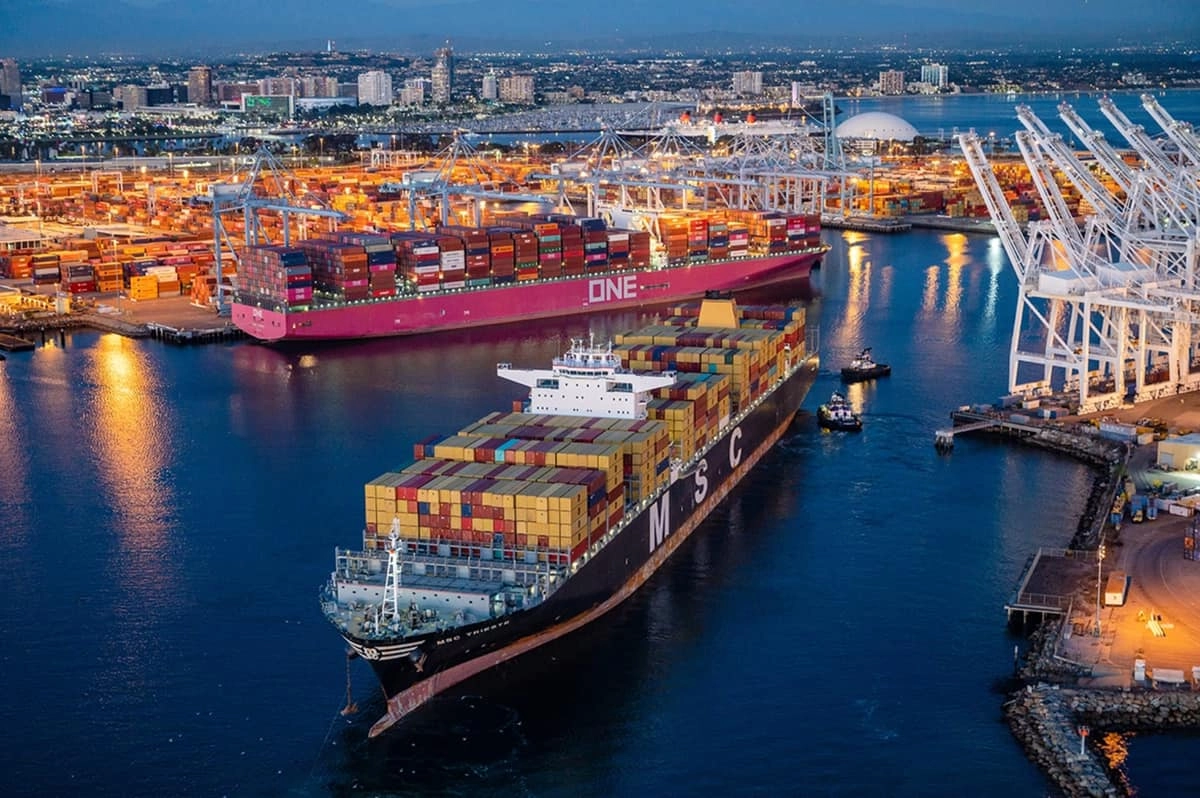California ports ‘underappreciated and undervalued’ maritime leader says
This article originally appeared on Cargomatic.com.

California’s ports are operating at something of a disadvantage when it comes to governance by political leaders, particularly regarding current environmental legislation.
That’s the view of John McLaurin, outgoing president of the Pacific Merchant Shipping Association, in an address presented before the Propeller Club of Los Angeles-Long Beach this morning.
“The work of the supply chain is mostly taken for granted. It is underappreciated and undervalued,” according to McLaurin.
“And from a public policy standpoint, [being taken for granted] is the biggest long-term threat to the competitiveness of California’s ports,” McLaurin says.
He underlines the threat in a variety of ways, not least in terms of the competition California’s ports face from rival gateways throughout the continent, noting in particular that “competition among North American ports is real and growing more intense every day.”
“Cargo owners have many options and no loyalty,” he asserted, stating that they have three “simple” requirements: order, predictability and low cost. “Negatively impact those factors and you risk losing their business,” he stated.
Another factor adversely impacting California’s ports is that they are being viewed as “ATM machines, something to be tapped into as opposed to being viewed as job creators operating in a competitive environment that need to be supported.”
According to McLaurin, legislative shortsightedness also plays a key role in some of the problems the state’s ports face, especially in the environmental sector where laws and rules are being established that simply cannot be met.
“It is one thing to set aspirational zero-emission goals, it is another to actually achieve them,” McLaurin says. The result of such short-term thinking, he says, is that we end up with “another version” of California’s hydrogen highway or high-speed rail project.
“These are projects that are decades behind schedule, have under-delivered, been scaled back from their original proposals, cost billions upon billions more than originally projected, and the accountability of which falls on no one,” he says.
“From our industry’s standpoint, instead of limiting or capping port activities and eliminating jobs, government should spend more time and resources developing new technologies and solutions,” he stated.
Compromise among competing stakeholders is essential if change is to come, but McLaurin fears that too few people in the right places believe in compromise to achieve the desired ends.
“Absent compromise, California’s ports, importers, agricultural and manufacturing exporters and all elements of the supply chain face a very challenging and problematic future,” he commented.
The key problem is that “cargo is moving elsewhere” with data for the past 20 years showing “strong growth” at East and Gulf Coast ports compared to “mediocre growth” for California’s container ports.
McLaurin does believe that there is time to “change course and speed” to ensure success for all interested parties. But he says such change will require “compromise and looking at problems holistically for the long term as opposed to just the next election cycle.”
However, he does not “see compromise and a broader holistic approach coming from our government” but insists instead that “it is time for the private sector to collectively engineer a better future.”
John McLaurin has served as President of the Pacific Merchant Shipping Association for the past 28 years. He will be stepping down in early 2024, to be replaced by Mike Jacob, currently PMSA Vice President and General Counsel.








